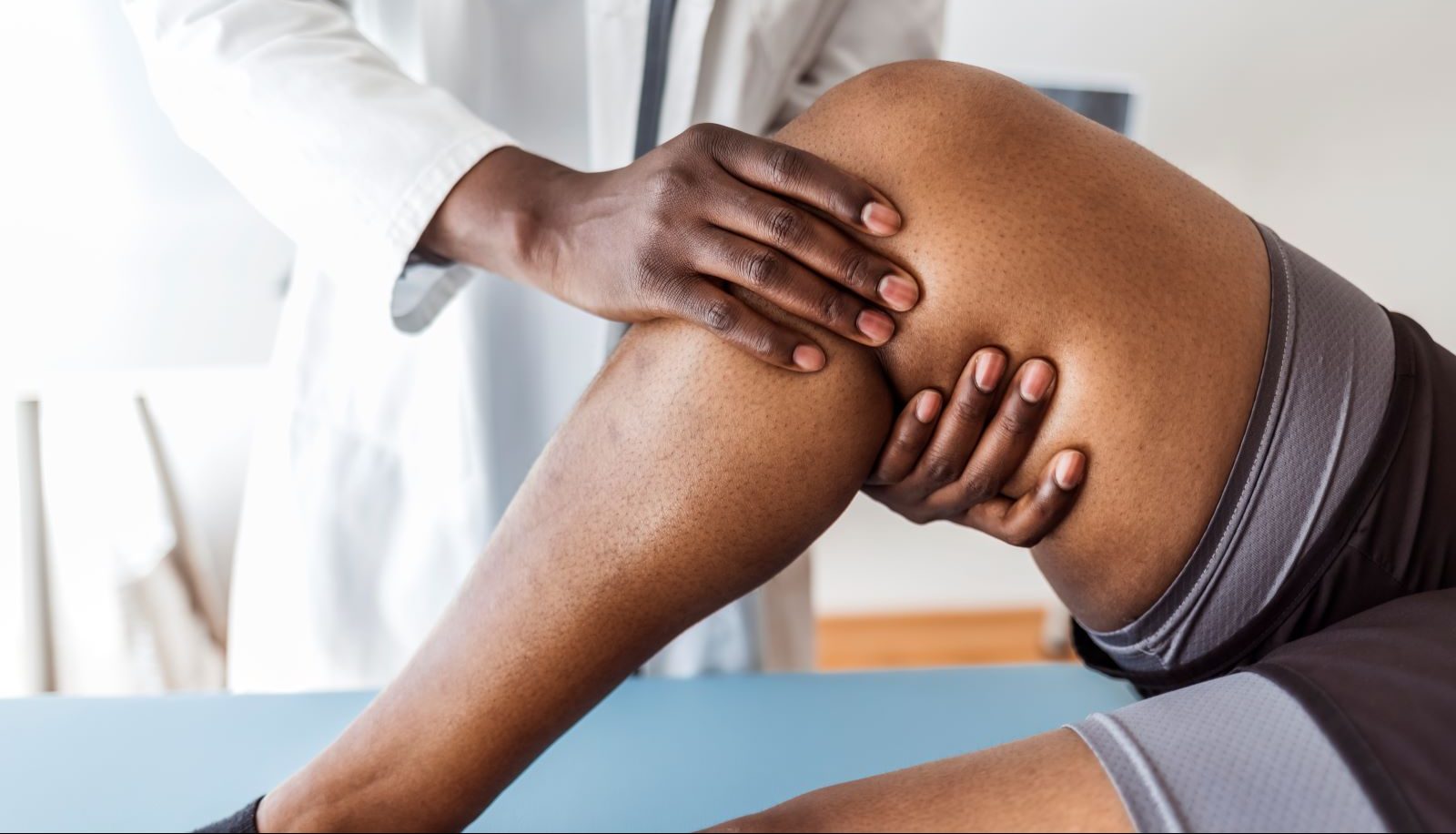<< Back
Recovering After a Hip or Knee Replacement Is Easier Than You Think

July 17, 2023
Plenty of things in life are harder than they should be — like, say, folding a fitted sheet. But thanks to the marvels of modern medicine, recovering after a hip or knee replacement isn’t one of them.
“Joint surgery today is miles ahead of what it was a few years ago,” says Daniel Witmer, MD, an orthopedic surgeon at the Bone & Joint Institute at Hartford Hospital.
Which means recovery is too.
After a joint replacement, most patients are home and walking right away.
“At least half of our patients go home the same day of surgery, and probably 90% go home the next day,” says Dr. Witmer.
If this comes as a surprise, here’s another: You’ll likely be on your feet and walking too, per your doctor’s instructions. A month or so later, and you’ll really be moving.
“By four to six weeks from surgery, most people are walking about a mile — and feeling a lot better than they were before surgery,” says Dr. Witmer.
> Related: 5 Lifestyle Changes to Make Before Your Hip or Knee Replacement
You’ll be off pain medication in just two or three weeks.
Gone are the days of high-dose narcotics after joint surgery, and months of nausea, constipation and grogginess.
Today, your care team will combine a handful of techniques to manage your pain. This includes nerve blocks around the time of surgery, followed by low-dose medications to control muscle tension and inflammation. Within a few weeks, most patients are off medication altogether.
“This approach helps your pain significantly without the side effects of narcotics,” says Dr. Witmer.
A physical therapist will help you with an exercise plan and stretching.
If you’ve been exercising regularly leading up to surgery, odds are you’ll bounce back more quickly. But whatever you’re working with, you’ll have a personal coach to help you recover — aka, a physical therapist.
They’ll help you set fitness goals, teach you exercises, and physically help you stretch your joint.
After a few weeks, you’ll graduate. “Then your job is to go walk,” says Dr. Witmer. “Walk as much as you can, and increase it week by week.”
For most people, 90% of recovering after a hip or knee replacement is in the first three months.
“By three months out, you’re feeling pretty darn comfortable and normal,” says Dr. Witmer. “If somebody saw you at the grocery store, they would have no idea you had surgery.”
For the last 10% of recovery — like certain side-to-side movements and getting safely back into sports — give yourself up to a year.
Questions after your hip or knee replacement? Here, you can text your team directly.
There’s nothing quite so comforting as knowing you can get ahold of your doctor. The Bone & Joint Institute team uses an app called Force Therapeutics — which, along with other recovery tools, includes a direct line to care teams.
“Say it’s Saturday, you just had surgery on Friday, and you have a question,” says Dr. Witmer. “Through the app, you can text me directly. It goes right to my phone.”
See? Easier than you thought.